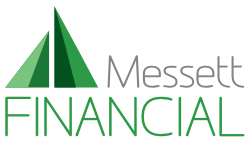The Top 3 Financial Decisions Made in November
 November marks a pivotal month in the financial calendar, as individuals and businesses alike gear up for the end of the year. The decisions made in this month can have a significant impact on tax obligations, investment strategies, and personal financial goals. Whether you’re planning for year-end expenses or preparing for the upcoming tax season, November presents an important window of opportunity for making strategic financial choices. Here are the top three financial decisions you should consider making in November:
November marks a pivotal month in the financial calendar, as individuals and businesses alike gear up for the end of the year. The decisions made in this month can have a significant impact on tax obligations, investment strategies, and personal financial goals. Whether you’re planning for year-end expenses or preparing for the upcoming tax season, November presents an important window of opportunity for making strategic financial choices. Here are the top three financial decisions you should consider making in November:
1. Maximizing Tax-Advantaged Accounts
One of the most important financial decisions to make in November is maximizing contributions to tax-advantaged accounts before the year ends. This could include retirement accounts like 401(k)s, IRAs, or Health Savings Accounts (HSAs), all of which come with tax benefits that can reduce your taxable income for the current year.
1.1. 401(k) Contributions: The IRS sets annual contribution limits for retirement accounts, and if you haven’t yet reached the limit for your 401(k), November is an ideal time to increase contributions. For 2024, the contribution limit for 401(k) plans is $23,000 for individuals under 50 and $30,500 for those 50 and older (including catch-up contributions). The contributions you make reduce your taxable income, which can lower your tax bill for the year.
1.2. IRA Contributions: If you’re contributing to a traditional IRA, you can deduct contributions up to $6,500 for individuals under 50 and $7,500 for those 50 and older. These contributions must be made by the tax filing deadline, which is typically in April, but contributing in November can give you more time to evaluate your tax situation.
1.3. HSAs: If you have a high-deductible health plan (HDHP), contributing to an HSA offers a “triple tax benefit” — tax-deductible contributions, tax-free growth, and tax-free withdrawals for qualified medical expenses. For 2024, the contribution limit for individuals is $4,150, and for families, it’s $8,300. Contributing early in November means you have ample time to fully fund the account and take advantage of all available tax benefits. The sooner you make these contributions, the more time your investments have to grow. Plus, taking advantage of these accounts before the year ends can be a powerful way to reduce your taxable income.
2. Reviewing and Adjusting Investment Strategies
November is also a great time to evaluate your investment portfolio and adjust it based on any changes in your financial goals or the market. With the year winding down, it’s important to ensure your portfolio is aligned with your long-term objectives, risk tolerance, and any anticipated changes in the economy or tax laws.
2.1 Rebalancing Your Portfolio: Over the course of the year, some of your investments may have performed better than others, which could lead to an imbalance in your portfolio. For example, stocks may have appreciated more than bonds, causing your asset allocation to shift. By reviewing your portfolio in November, you can rebalance it to ensure that it reflects your desired risk profile and investment goals.
2.2 Tax-Loss Harvesting: If you’ve had investments that have under performed, November is an ideal time to consider tax-loss harvesting. This strategy involves selling investments that have declined in value to realize capital losses, which can offset any capital gains you’ve realized throughout the year. The losses can also be used to reduce your taxable income by up to $3,000 per year if your losses exceed your gains.
2.3 Year-End Contributions to Brokerage Accounts: If you’re contributing to a brokerage account and want to maximize your returns for the year, consider making additional contributions in November. This gives your money more time to work for you before the year’s end and allows you to take advantage of any year-end market movements. If you don’t have a financial advisor, this may also be a good time to consult one. They can provide insights into the market outlook and help ensure that your investment strategy is still in line with your financial objectives.
3. Planning for Holiday Spending and Year-End Expenses
The holiday season can bring significant expenses, and the financial decisions you make in November will influence how you navigate this spending. From gift shopping to travel and entertainment, it’s important to plan ahead so that you don’t end up overspending and derailing your financial goals for the year.
3.1 Creating a Holiday Budget: Setting a holiday budget in November ensures that you stay on track and avoid overspending. Take into account gifts, travel costs, meals, and any other seasonal expenses. By planning ahead, you can allocate a specific amount of money for each category, helping you to stay within your means and avoid relying on credit cards.
3.2 Taking Advantage of Sales: November is synonymous with major sales events like Black Friday and Cyber Monday. While these sales can provide significant discounts, it’s important to approach them strategically. Stick to your budget and avoid impulse buys that may not fit into your overall financial plan. Consider making a list of the items you truly need or have been planning to buy, and only purchase those items at a discount.
3.3 Saving for Year-End Expenses: In addition to holiday-related costs, November is also a good time to set aside funds for any other year-end expenses that may arise, such as medical bills, car maintenance, or end-of-year tax payments. If you haven’t yet accounted for these expenses, making sure you have the funds available can help you avoid dipping into your savings or going into debt.
Conclusion
November is more than just the gateway to the holiday season — it’s an important time to make proactive financial decisions that can benefit you now and in the future. Whether you’re optimizing tax-advantaged contributions, adjusting your investment portfolio, or planning for holiday spending, the choices you make this month can help you finish the year strong and set yourself up for success in the new year. By staying focused and strategic, you can take advantage of the opportunities November offers to secure your financial well-being with Messett Financial.

